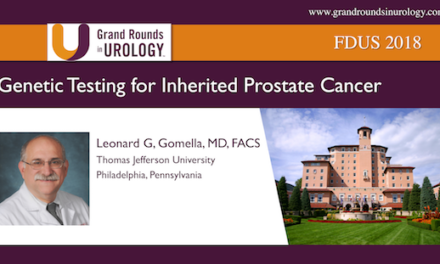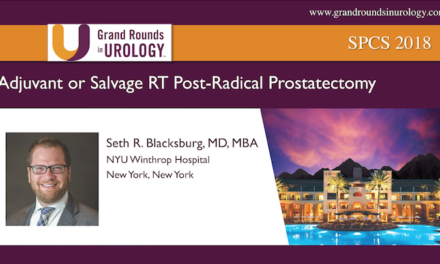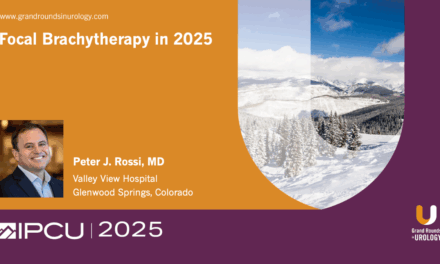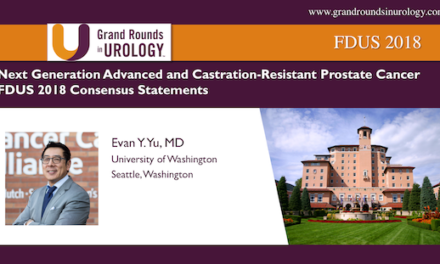Sigrid V. Carlsson, MD, PhD, MPH, presented “Screening and Prevention of Prostate Cancer 2021 (Part 1): Evidence for PSA Screening” for the Grand Rounds in Urology audience in June 2021.
How to cite: Carlsson, Sigrid V. “Screening and Prevention of Prostate Cancer 2021 (Part 1): Evidence for PSA Screening” May 2021. Accessed Nov 2025. https://grandroundsinurology.com/screening-and-prevention-of-prostate-cancer-2021-part-1-evidence-for-psa-screening/
Screening and Prevention of Prostate Cancer 2021 (Part 1): Evidence for PSA Screening – Summary:
In part 1 of a 3-part series, Sigrid V. Carlsson, MD, PhD, MPH, Assistant Attending Epidemiologist at Memorial Sloan Kettering Cancer Center, looks at the evidence supporting widespread prostate specific antigen (PSA) screening. She briefly discusses the history of PSA as a marker for prostate cancer, then looks at the evidence from 3 large randomized trials on PSA with long follow-up. Dr. Carlsson explains that these studies provide compatible evidence that regular PSA screening reduces prostate cancer mortality by approximately 30%. Other studies also indicate that the balance between benefits and harms of screening improves over time, that the death rate from prostate cancer in the US declined with the rise of PSA screening, and that the US is now seeing a definitive and sustained increase in prostate cancer metastases in the US consistent with decreases in PSA screening. Dr. Carlsson then gives an overview of risk factors associated with prostate cancer incidence and mortality, including geographic location, age, family history, African ancestry, and the BRCA2 gene, all of which are incorporated into the NCCN guidelines on PSA screening. She also points out that PSA level at different points in life is also a particularly good indicator of risk, and that re-screening intervals should be adapted based on age, general health, and prior PSA. Dr. Carlsson does observe, however, that the undeniable reduction in prostate cancer mortality due to PSA screening is somewhat offset by a reduction in quality-adjusted life years, mainly as a result of the long-term side effects of treatment. She concludes by introducing her 5 Golden Rules of testing to keep the benefits and reduce the harms, all of which focus on consent and caution.
Parts 2 & 3 of this platinum lecture series will be published in the coming weeks.
ABOUT THE AUTHOR
Sigrid V. Carlsson, MD, PhD, MPH, is the Division Head of the Clinical Epidemiology of Early Cancer Detection at DKFZ German Cancer Research Center in Heidelberg, Germany. Her research focuses on developing risk-stratified approaches to screening, diagnosis, treatment, and follow-up.





